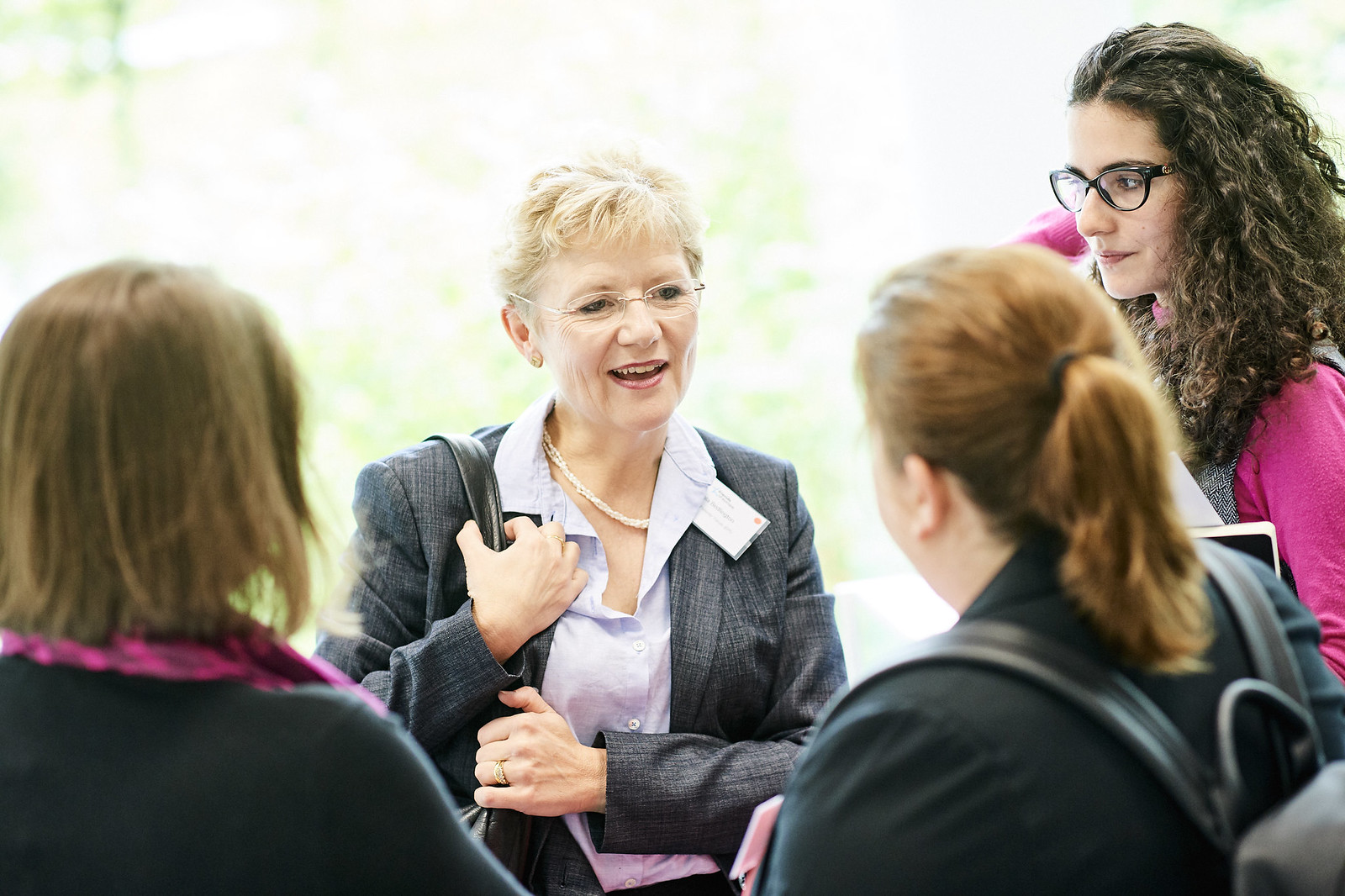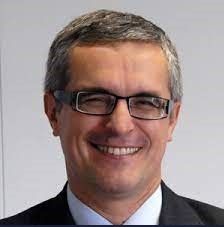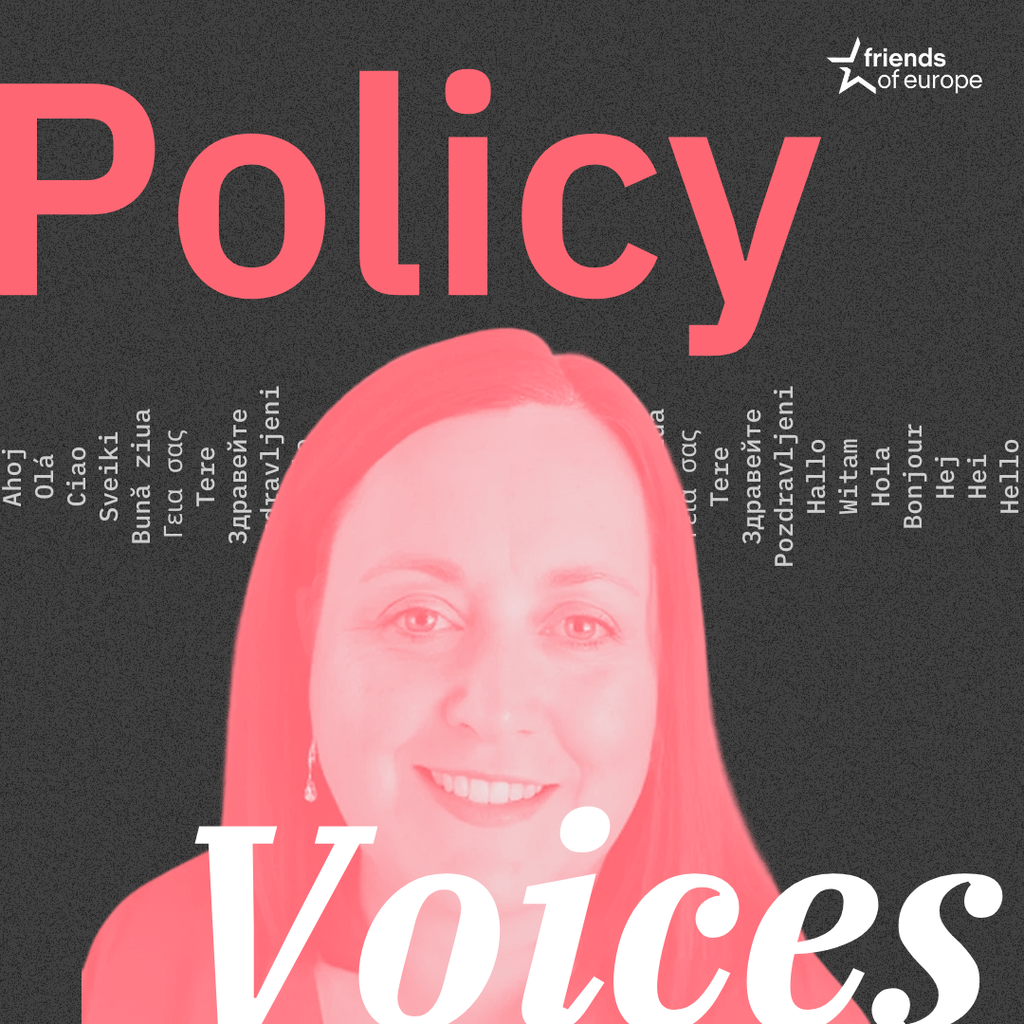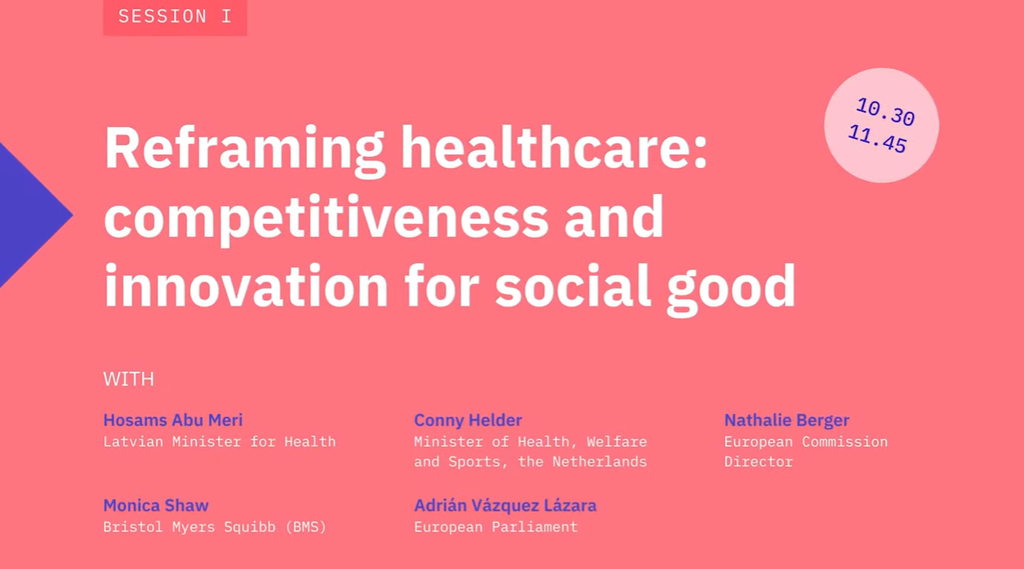
Summary
Home care is a sustainable way to deliver healthcare that provides patients with a better quality of life, panellists told a Friends of Europe Café Crossfire lunch debate on Wednesday 3 May.
The debate came at a time when the cost pressures of healthcare are rising, due to Europe’s ageing population and the increase in chronic conditions. Long-term care for older people alone is projected to cost an additional one per cent of GDP in the coming decades.
Part of the problem is that current healthcare systems were designed to address acute needs, with the hospital as the focal point. But home care could lower costs for healthcare systems and form part of a more patient-centric model.
There are already many ways to provide healthcare effectively and sustainably to patients in their homes. Technology can offer patients with long-term conditions the possibility of receiving quality home-based healthcare from clinicians who monitor their health status remotely, track progress and optimise treatments. But such approaches have not yet become mainstream. That is why it is important to rethink healthcare with the patient at the centre.

Event recording
Financing healthcare Should you not be able to see the gallery, please click here.
Should you not be able to see the gallery, please click here.
About
Universal access to healthcare is something that Europeans take for granted, but can we still afford it? The challenges to European healthcare systems are unprecedented. The population is ageing. The increase in chronic conditions is swelling demand and inflating costs. Long-term care for older people alone is projected to cost an additional 1% of GDP in the coming decades. We have ways to provide care more appropriately, effectively and sustainably – but now, we need to put them into practice.
Our healthcare systems were designed to address acute needs with the hospital as the focal point. But the realities of healthcare today mean we need a radical rethink with the patient at the centre. How do we end the fragmentation of healthcare systems, closing the gaps between primary and secondary care, and between the health and social care systems, and put patient needs first?
Home care is a key part of the patient-centric model, giving people with chronic conditions the power to live fuller, better-quality and more independent lives and take control of their health – while lowering costs for healthcare systems.
Technology can also play a crucial role. It can streamline healthcare delivery and reduce costs. It offers patients with chronic or long-term conditions the dream of receiving quality healthcare in their own homes while enabling clinicians to monitor their health status remotely, track progress and optimise treatments. In addition, keeping patients out of hospitals reduces the risk of infections and saves money.
- How can Europe help mainstream new emerging models of care delivery?
- What can payers and authorities do to promote a shift to home-based care?
- How do we overcome structural problems and change mindsets?
- What is the role of telemedicine in enabling more care to be delivered at home?
- What can be done to increase patient confidence in home-based care?
Related content:
Friends of Europe: Adapting EU health policy to an evolving Europe: What the EU should ‘Start’, ‘Stop’ or ‘Do Differently’
IMAGE CREDIT: Zinkevych/Bigstock.com; Wavebreak Media Ltd/Bigstock.com; AndreyPopov/Bigstock.com
Schedule
Speakers:
Nicola Bedlington
Secretary-General of the European Patients’ Forum (EPF)
Alberto de Rosa
CEO of the Ribera Salud Group that developed the ‘Alzira Model’
Frederic Hoffmann
General Manager Benelux at Baxter
Andrzej Ryś
Principal Scientific Adviser at the European Commission Directorate General for Health and Food Safety (DG SANTE)
Moderator:
Tamsin Rose
Facilitator
Speakers

Secretary-General of the European Patients’ Forum (EPF)
Nicola Bedlington leads the European Patients’ Forum (EPF), an umbrella organisation that works with patients’ groups in public health and health advocacy across Europe. Its mission is to ensure that patients with chronic or lifelong conditions have access to high-quality, patient-centred equitable health and social care. Bedlington also led the Environment and Schools Initiatives Secretariat, an OECD-initiated international governmental network on education and sustainable development.

CEO of the Ribera Salud Group that developed the ‘Alzira Model’
Alberto de Rosa has over 25 years of experience in the health sector. In 1998, he was appointed managing director of the La Ribera de Alzira Hospital in Valencia, the first public hospital in Spain managed under a public–private partnership model. Since 2007, he has been the head of the Ribera Salud Group, a Spanish company specialised in developing new models of care and integrated management of health and social services. The group was notably a key player in developing the ‘Alzira Model’, a world-renowned model of vertical integration that provides incentives for out-of-hospital care.Nicola Bedlington leads the European Patients’ Forum (EPF), an umbrella organisation that works with patients’ groups in public health and health advocacy across Europe. Its mission is to ensure that patients with chronic or lifelong conditions have access to high-quality, patient-centred equitable health and social care. Bedlington also led the Environment and Schools Initiatives Secretariat, an OECD-initiated international governmental network on education and sustainable development

General Manager Benelux at Baxter
Since 2009, Frederic Hoffmann has worked at Baxter, a leading healthcare and medical technology company specialised in the treatment of medical conditions such as kidney disease and haemophilia. He began as Strategic Projects Director in charge of transforming programmes such as Key Account Management, Home Channel and Customer Value-Added Services. From there, he went on to lead the Hospital Care Business Unit for Baxter Belgium and Luxemburg before being appointed General Manager for Benelux.

Principal Scientific Adviser at the European Commission Directorate General for Health and Food Safety (DG SANTE)
Andrzej Rys has held several key positions in local and national health institutions, notably serving as the Director of the Health Department of the City of Kraków, President of the Polish Public Health Foundation and Polish Deputy Minister for Health, a role which put him on the negotiation team for Poland’s accession to the EU. He later founded and led the School of Public Health and the Centre for Innovation Technology Transfer at Jagiellonian University. In 2006, Rys joined the European Commission as the Director for Public Health and Risk Assessment and was later appointed Director for Health Systems, Medical Products and Innovation at the Directorate-General for Health and Food Safety, where he works on improving EU healthcare systems for citizens.
Partners
Coorganized with
Activities
Re-imagining Europe's health systems
Past event In person & livestreamed

- Area of Expertise
- Sustainable Livelihoods
Health check for a competitive medical technology sector in Europe
Past event In person

- Area of Expertise
- Sustainable Livelihoods
Healthy ageing for Europe's future: the value of adult immunisation
Past event In person & livestreamed

- Area of Expertise
- Sustainable Livelihoods
Europe’s competitiveness: learnings from the healthcare sector
Past event In person & livestreamed

- Area of Expertise
- Sustainable Livelihoods
Policy Voices | Re-imagining Europe’s health systems
- Category
- Podcast
- Area of Expertise
- Sustainable Livelihoods
Financing the green and just transition: towards further partnerships…
- Category
- #CriticalThinking
- Author
- By Sebastián Nieto-Parra
Reclaiming medicines and health innovation for our health
- Category
- #CriticalThinking
- Author
- By Els Torreele
Hidden biases in public health research: why we are failing our most…
- Category
- #CriticalThinking
- Author
- By Marthe De Boevre

- Area of Expertise
- Sustainable Livelihoods

- Area of Expertise
- Sustainable Livelihoods

- Area of Expertise
- Sustainable Livelihoods

- Area of Expertise
- Sustainable Livelihoods
Continue
the debate on
- Debating Europe

